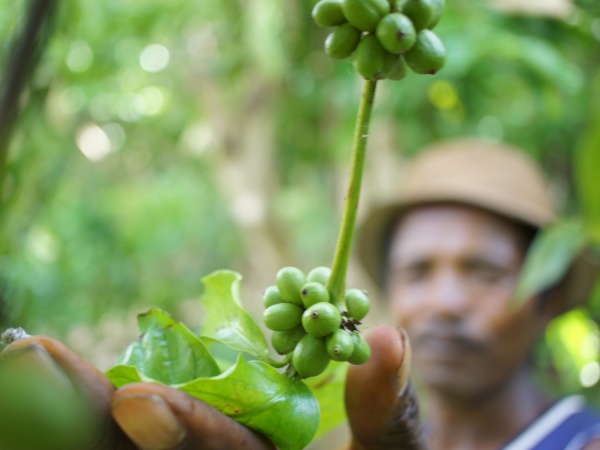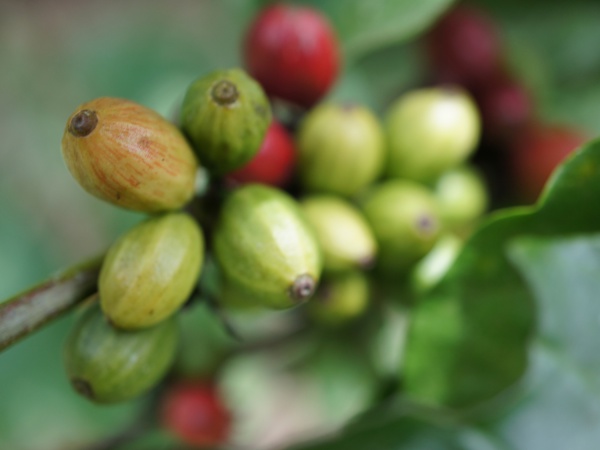Difference between revisions of "Madagascar Coffee"
CampMaster (talk | contribs) |
CampMaster (talk | contribs) |
||
| Line 1: | Line 1: | ||
| + | The two main coffee types cultivated in Madagascar are Arabica and premium quality Robusta. | ||
| + | |||
| + | The cultivation areas of Robusta coffee are along the east coast: Tamatave, Antalaha, Nosy Be and Sambirano. | ||
| + | |||
| + | Arabica from Ethiopia arrived in Madagascar at the beginning of the 19th century . | ||
| + | |||
| + | Arabica is grown at higher altitudes of the central highlands of the Antananarivo Province and on the northern central plateau Lake Alaotra in the Toamasina Province | ||
| + | |||
| + | Only about 2% Arabica are cultivated (http://www.priori.ch/das_Buch/39.htm), but this should be expanded. | ||
| + | |||
| + | Additionally, there are about 50 wild coffee varieties with less caffeine contents but which have not been widely commercialised (http://www.priori.ch/das_Buch/39.htm). | ||
| + | |||
| + | The coffee plantations are owned by individual provincial small farm holders who do not use articicial fertilisers. | ||
| + | |||
| + | Madagascar's Robusta Conilon/Kouillou has a pronounced acidity and light body, yet balanced and harmonious, which makes it especially suited for blends. | ||
| + | |||
[[File:Madagascar Coffee 001.jpg|600px]] | [[File:Madagascar Coffee 001.jpg|600px]] | ||
Revision as of 07:13, 4 June 2018
The two main coffee types cultivated in Madagascar are Arabica and premium quality Robusta.
The cultivation areas of Robusta coffee are along the east coast: Tamatave, Antalaha, Nosy Be and Sambirano.
Arabica from Ethiopia arrived in Madagascar at the beginning of the 19th century .
Arabica is grown at higher altitudes of the central highlands of the Antananarivo Province and on the northern central plateau Lake Alaotra in the Toamasina Province
Only about 2% Arabica are cultivated (http://www.priori.ch/das_Buch/39.htm), but this should be expanded.
Additionally, there are about 50 wild coffee varieties with less caffeine contents but which have not been widely commercialised (http://www.priori.ch/das_Buch/39.htm).
The coffee plantations are owned by individual provincial small farm holders who do not use articicial fertilisers.
Madagascar's Robusta Conilon/Kouillou has a pronounced acidity and light body, yet balanced and harmonious, which makes it especially suited for blends.


